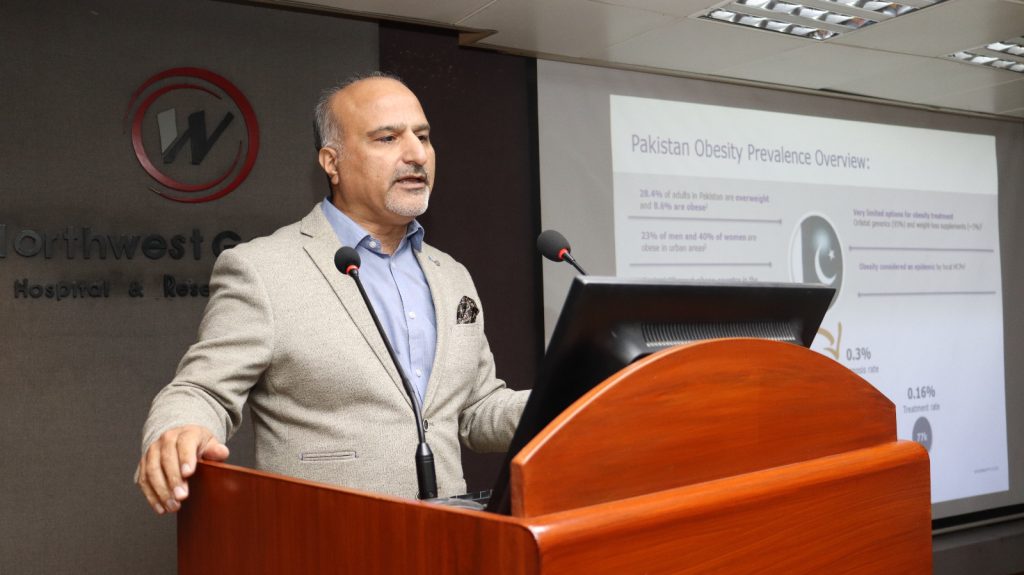The Medical Professional Education Department (MPED), in collaboration with Northwest General Hospital & Research Centre (NWGH&RC), organized a one-day symposium on November 13, 2024, focused on “GLP1 and Obesity.” The event brought together an esteemed panel of medical experts, healthcare professionals, and trainee medical officers to address the growing global issue of obesity and explore the therapeutic potential of GLP1 in its management. Keynote speakers included Prof. Dr. Arshad Hussain, Consultant in Endocrinology and Diabetology, Dr. Aqil Noor, Senior Registrar in Endocrinology, and Dr. Nizamud Din, Senior Registrar in Endocrinology. Obesity has become a global epidemic, with the World Health Organization (WHO) reporting a tripling of obesity rates since 1975. As of 2016, more than 650 million adults were classified as obese, and in Pakistan, nearly 30% of the adult population is either obese or overweight, placing a significant strain on the healthcare system. Obesity is closely linked to a range of serious health issues, including cardiovascular disease, Type 2 diabetes, and certain cancers, making it one of the leading preventable causes of death worldwide. Recent advancements in obesity treatment have centered around GLP1 (glucagon-like peptide-1), a hormone that regulates insulin secretion, blood sugar levels, and appetite. GLP1 receptor agonists such as liraglutide and semaglutide have shown promising results in reducing body weight, with clinical trials reporting an average weight loss of 15-20% in patients. A landmark study published in The New England Journal of Medicine (2023) found that patients treated with semaglutide over 68 weeks experienced an average weight loss of 14.9%, further sparking interest in GLP1-based therapies as an effective treatment for obesity, particularly when combined with lifestyle changes like diet and exercise. The symposium also emphasized the future of obesity treatment, highlighting the importance of personalized medicine and the role of genetic factors in determining how patients respond to GLP1 therapies. Experts stressed the need for further research to better understand the long-term safety and efficacy of GLP1 receptor agonists, especially in individuals with comorbid conditions. Prof. Dr. Arshad Hussain concluded the event by thanking participants and emphasizing the importance of a multi-faceted approach to addressing obesity, stating, “It is essential that we combine medical interventions with public awareness and preventive strategies to effectively tackle this global health crisis.” MPED remains committed to advancing healthcare education and fostering collaboration within the medical community through events like this symposium, which supports the continuous professional development of healthcare providers, ensuring they stay at the forefront of emerging medical treatments and innovations.

